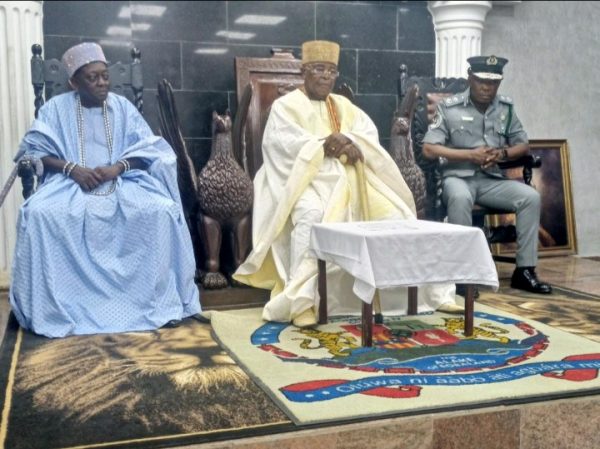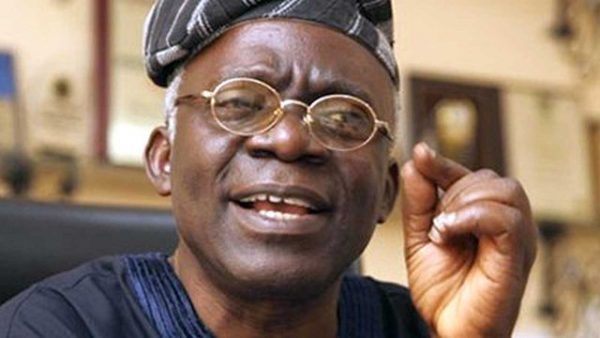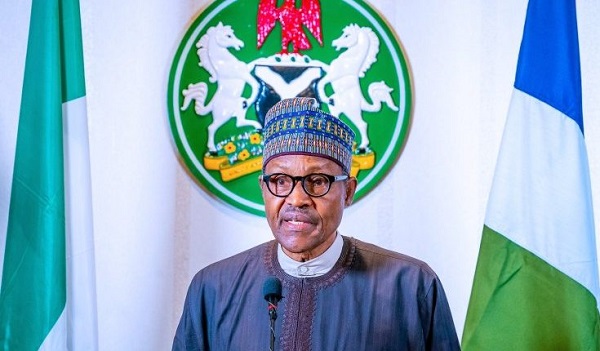COMMENTARY
Little Role For Space Tech In Nation’s Security Architecture
As the security challenges in the country grow more complex, usually some questions come to mind. For instance, what is the role of the National Space and Research Development Agency, NASRDA, and NIGCOMSAT in assisting and strengthening the nation’s security architecture, that is, if you permit the cliché? Why will they never help to resolve any of the plethoras of kidnaps and terrorist activities in the country?
People are getting exhausted under punishing surreal anomie, and with no help coming their way, it is a frightening time of holding on to straws, hoping that help would come miraculously. With hopelessness in their eyes, they are searching for answers from even the most unlikely sources, and some of the platitudes that come out, if they come at all, don’t show us as serious people.
I was watching TV just last week and a question close to the aforementioned just popped up. A young man from one of the government organisations responded to the effect that the country will need another satellite to strengthen the capacity of what is already up there in the orbit for the nation to resolve some of the issues assailing us.
As a reporter who has no demonstrated capacity in space technology and rocket science, one can be very angry at this kind of grandstanding which has little hold on the truth. You are talking of Chibok Girls (2014), the Dapchi Girls (2018), the kidnap at Government Girl’s Secondary School, Jangebe, Zamfara State(2021), Government Science College, Kagara, Niger State (2021), the Greenfield University (2021), and many more. So many displaced people. Nigeria is now exporting refugees to neighboring countries, scandalously. Thousands more scrounging for daily sustenance in the rubbles of government failure and one young man wants to send another satellite into space! Why don’t you speak the truth about the current space project and its inappropriateness in responding to the present security challenges?
NARSDA was set up in 1999 with a mission to vigorously pursue the attainment of space capabilities and the enhancement of the quality of life of mankind through space-related research and development, capacity building in the fields of science, space law, and administration for sustainable national development. The agency, domiciled in the Ministry of Science and Technology, had the pioneering imprimatur of Prof Robert Ajayi Boroffice who is now a successful politician.
There were big dreams for the agency. Space technology is an elite programme, attracting only the best. When South Korea started its own space journey in the late ’80s, the country sent some of its brightest students to the University of Surrey in the United Kingdom, from where they launched KITSAT-1 (Our Star) in 1992. A mythical story about the National Aeronautics and Space Administration, NASA, of the United States is that only the most brilliant work in the organisation. So, even with his background in Zoology and other areas of academic research, the humble achievements of NARSDA under Boroffice remain well documented.
However, if technology is for solving problems, or put it another way if offices are set up to achieve certain objectives, the twist in this story will fascinate you. One day in 2006, a Project Management Office of NARSDA simply transmuted into Nigerian Communications Satellite Nigeria Limited, NIGCOMSAT, with allegiance transferred to the Ministry of Communications, instead of remaining under Science and Technology. What should have been the business development unit of NARSDA gained independence through the Nigerian way of doing things, and some of the workers of the space agency led by Ahmed Rufai, left NARSDA to become the pioneer staff of NIGCOMSAT. Rufai became the pioneer Chief Executive.
From that day, politics and bravura took over commonsense and research activities and, all of a sudden, NARSDA looked sabotaged and derailed, and was struggling for life as the new organisation engaged in vile politicking, or politricking might even be more appropriate. The promoters sold impossibilities to the Nigerian public and we accepted them with little questioning, as always. Now we are looking for results, for help from technology that does not exist.
May 23, 2007, waking up at the hotel that morning in San Jose, one interesting story was splashed on the front page of the New York Times, and the story ran well into the inside pages. Titled, “Blocked by U.S.”, China finds its way to space, the story gave detailed reports of the launch of Nigcomsat-I and how an exultant project manager, Ahmed Rufai, told everybody who cared to listen: “We want to be part of the digital economy. We are trying to diversify the economy.” While the business case was for the satellite to pay for itself within seven years, he enthused that the technology would enhance distance learning education programmes for rural areas, online public access to government records, and a video monitoring system of remote oil pipelines to allow quicker responses to spills, among others. The project cost was $300m out of which the state-owned Export-Import Bank (Exim) of China provided $200m in preferential buyers credit, a precondition which only the Great Wall Industry of China was ready to meet, among all the bidders.
That was good politicking at the international level, especially in a world where countries need to engage in loud actions to reinstate their nationhood. Except for that back home, Rufai had also gone overboard playing his politics. Without any proof of concept, he told the whole nation that NIGCOMSAT had the capacity to give Nigerian free GSM phones and affect the cost of service significantly, but only the regulator, the Nigerian Communications Commission, NCC, was blocking its way. The matter went for a Public Hearing at the National Assembly. Rufai could hardly prove his case as he was told in very plain terms by the NCC that his organisation was not licensed for last-mile operations.
Next was the Closed Circuit Television, CCTV, a project in Abuja and Lagos. With another $470m loans from the Chinese Exim, the NIGCOMSAT boss coordinated a doomed project which was never planned to work. One of the legs of the project was that the Nigerian satellite would be used to coordinate all the cameras. Till tomorrow Nigeria remains in debt as the programme was never completed.
The Chibok Girls were taken from their school in very bizarre circumstances. Some convenient excuses were given why NARSDA or Nigcomsat couldn’t be of any use. The security situation has grown monstrously intense and Nigerians are troubled, hitting the panic button and searching for solutions from their technology. The question here is: was the satellite payload ever designed to solve the kind of problems confronting us at the moment?
I am sorry to disappoint you. The country has no space technology that can help us out of a self-inflicted security challenge. I hate to accept what one fellow wrote about the Nigerian satellite that the cost was not enough to shop for sausage in a satellite market. The truth really is that the Nigerian satellite has never been more functional than a badly made sausage. Very dead in the skies. After the politics of power grab and influence peddling, only excuses remain in the geostationary orbit. What a pity!
Culled from Vanguard By Okoh Aihe







